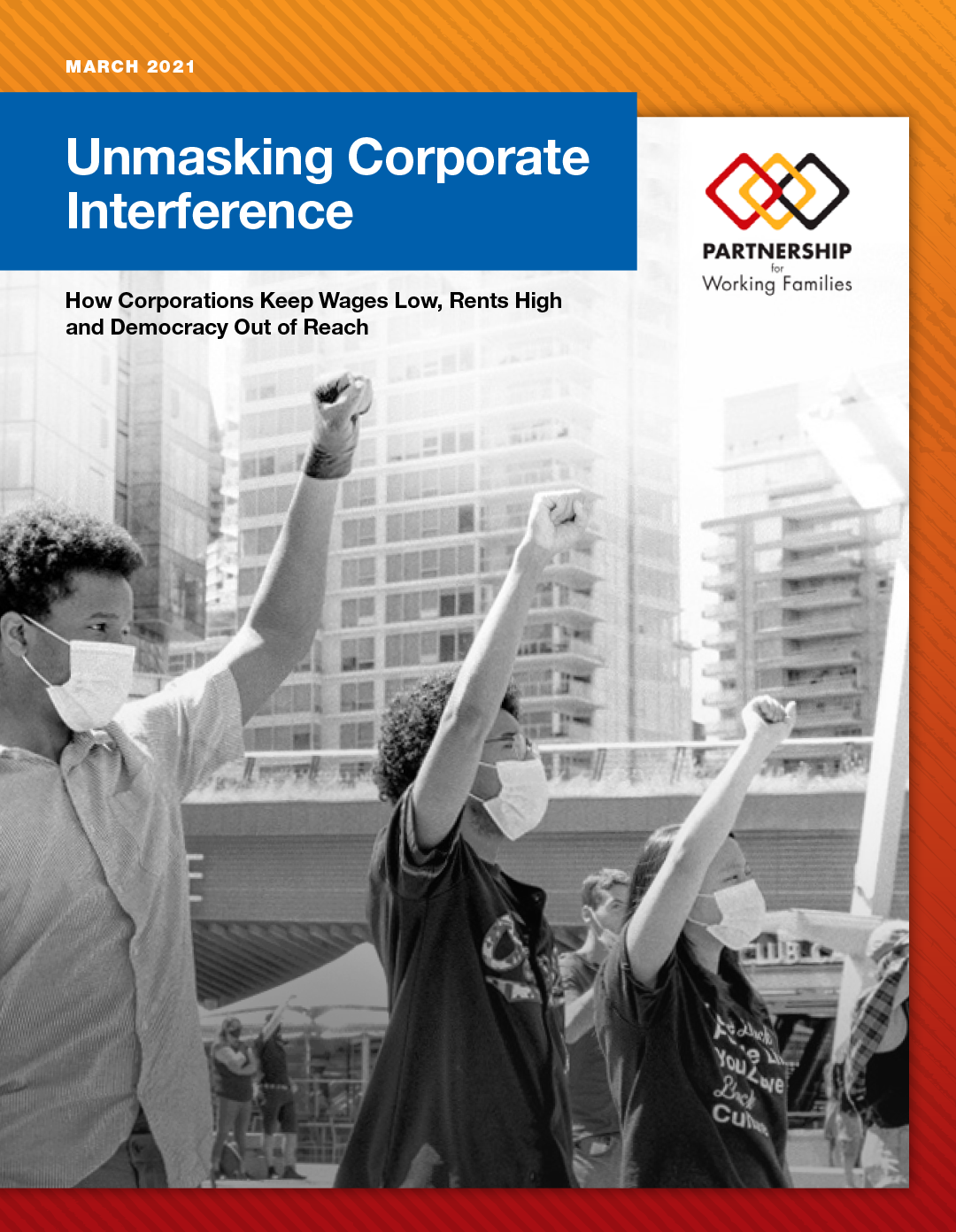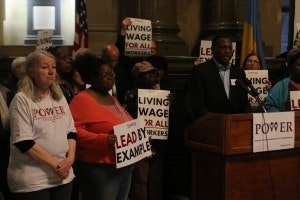By Grace Sheedy, Puget Sound Sage Outreach & Communications Coordinator
After almost two years of rallies, marches, postcard writing, and negotiations, an agreement was struck in late August between Seattle’s Dearborn Street Coalition for Livable Neighborhoods and Dearborn Street Developers LLC on a $300-million project, slated to be built on a 10-acre site at the crossroads of the city’s most economic and ethnically diverse communities – including Little Saigon, the Central District, the International District and North Rainier Valley.
This community benefits agreement (CBA) is a legally binding agreement between the coalition and the developer and represents a milestone for the Northwest. It brings labor standards, affordable housing, environmentally sustainable building practices, and more to the 600,000 square feet of retail and 500 units of housing planned for the project.
In 2005, retail developer Dearborn Street Developers LLC with TRF Pacific proposed a large mixed-use project on the site of Seattle’s Goodwill campus. Goodwill offered their site to the developer in exchange for construction of a new Goodwill retail store and training facilities within the project. In Spring 2005, the Vietnamese-American Economic Development Association (now the Washington Vietnamese Chamber of Commerce or WAVA), representing the interests of small businesses in Little Saigon, began petitioning for a better project. Since then, the community has fought to have its interests represented in the project.
In September 2006, the Dearborn Street Coalition for Livable Neighborhoods (DSCLN) met for the first time. Puget Sound Sage, affiliate organization of the Partnership for Working Families, took a lead role in the coalition. Over the coming months, coalition members turned out for public hearings on the project, gathered 500 people for a march and rally in support of community benefits from the project, collected more than 1,000 signed postcards in support of the campaign, and filed an appeal of the project’s Master Use Permit. Finally, in August 2008, after 18 months of negotiations, the agreement between DSCLN and the Dearborn project was signed.
The Dearborn Street CBA brings quality jobs to the development by requiring that construction contractors pay prevailing wages and provide health and retirement benefits. The contractors will also participate in minority/women-owned business programs and strive to hire local residents through pre-apprentice programs. Additionally, the grocery and drug store tenants of the development will agree to stay neutral if their employees decide to unionize. These represent significant victories for the local unions who joined the coalition to fight for both labor standards and affordable housing.
In an exceptional guarantee for a commercial project on private land, the developer guarantees the project will include 200 units of affordable housing, including 80 units affordable at 30% of median income and 50 family units. All are guaranteed affordable for 50 years.
“For many low-wage workers, the lack of quality jobs and affordable housing are the two biggest challenges of living in Seattle,” said David West, executive director of Puget Sound Sage. “This agreement addresses both problems, moving us towards economic justice for working families.”
Large-scale development projects generate controversy. The community benefits model is taking hold across the country as a way of harnessing development to meet the needs of the community. CBAs give communities a voice in shaping their future. The Dearborn Street Coalition for Livable Neighborhoods brought together community, labor, religious, and ethnic small business groups to address controversy and community needs at the same time.
In the case of the Dearborn project, the Vietnamese community in Little Saigon wanted to preserve small businesses in the area. Through the CBA, the neighborhood will receive money over the coming years to develop a community center which will serve as another way of attracting visitors and shoppers to the neighborhood and help safeguard the unique small business community. The agreement also provides funds for technical assistance for small businesses and reduced rent for Vietnamese community-based non-profits in the new development.
The Jackson Place neighborhood group wanted to enhance their neighborhood and provide benefits to residents. Their suggestion to move a loading dock to reduce traffic in the neighborhood improved the project both from Jackson Place’s point of view and from that of the retailer. The CBA also includes provisions for smaller signs and unique storefronts to help prevent the mall from completely redefining the character of the neighborhood.
The project still needs the approval of the Seattle City Council, which must approve a site rezone and public street vacations. The developer will have to pay the city for the street vacations, and the coalition and developer will ask that the City of Seattle invest those funds, expected to amount to $4-8 million, in neighborhoods around the project.
For more information on the Dearborn Street CBA victory, contact Elana Dix, Puget Sound Sage Community Organizer at elana@pugetsoundsage.org or visit our website at http://www.pugetsoundsage.org
This community benefits agreement (CBA) represents a milestone for the Northwest. It brings labor standards, affordable housing, environmentally sustainable building practices, and more to the project.





